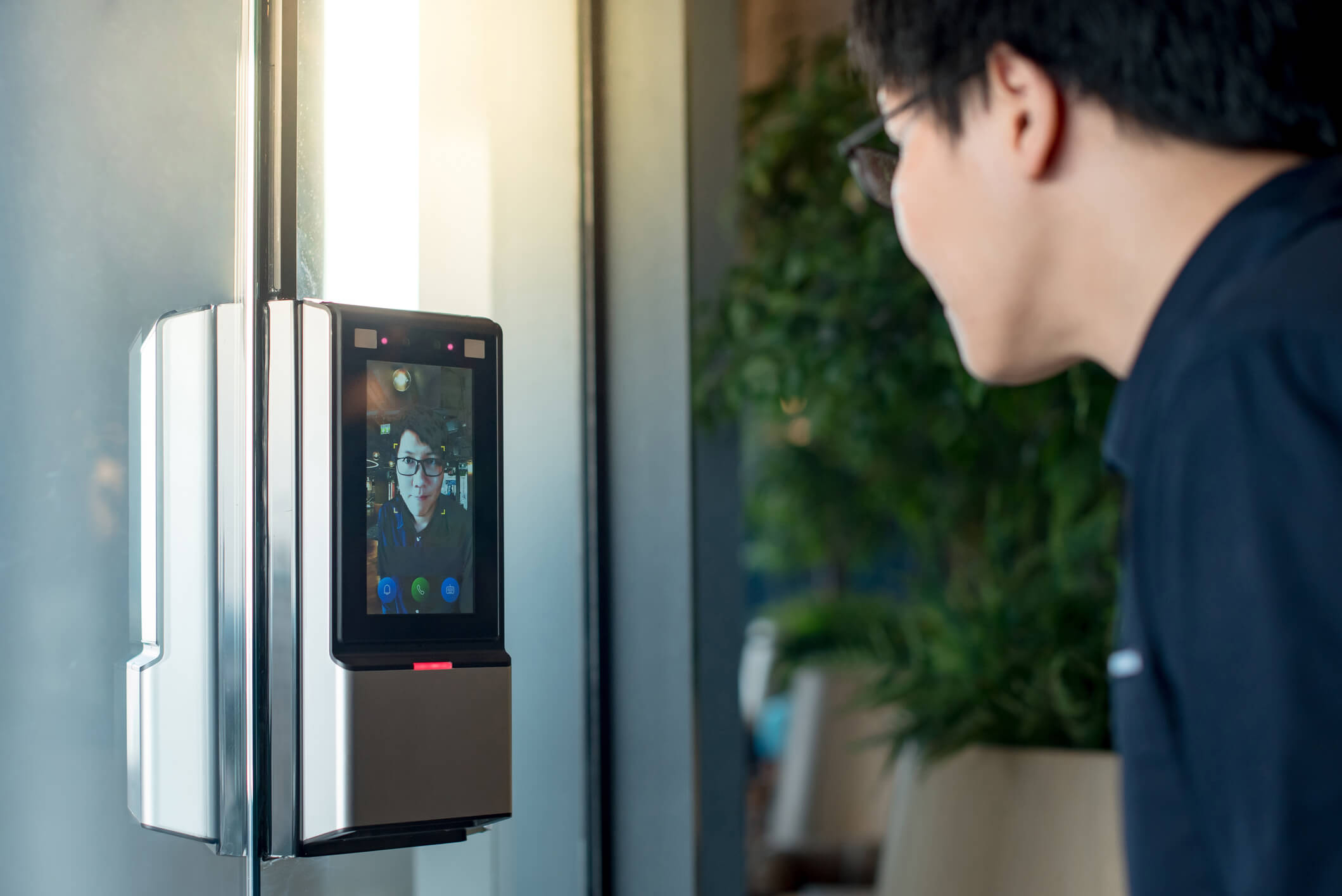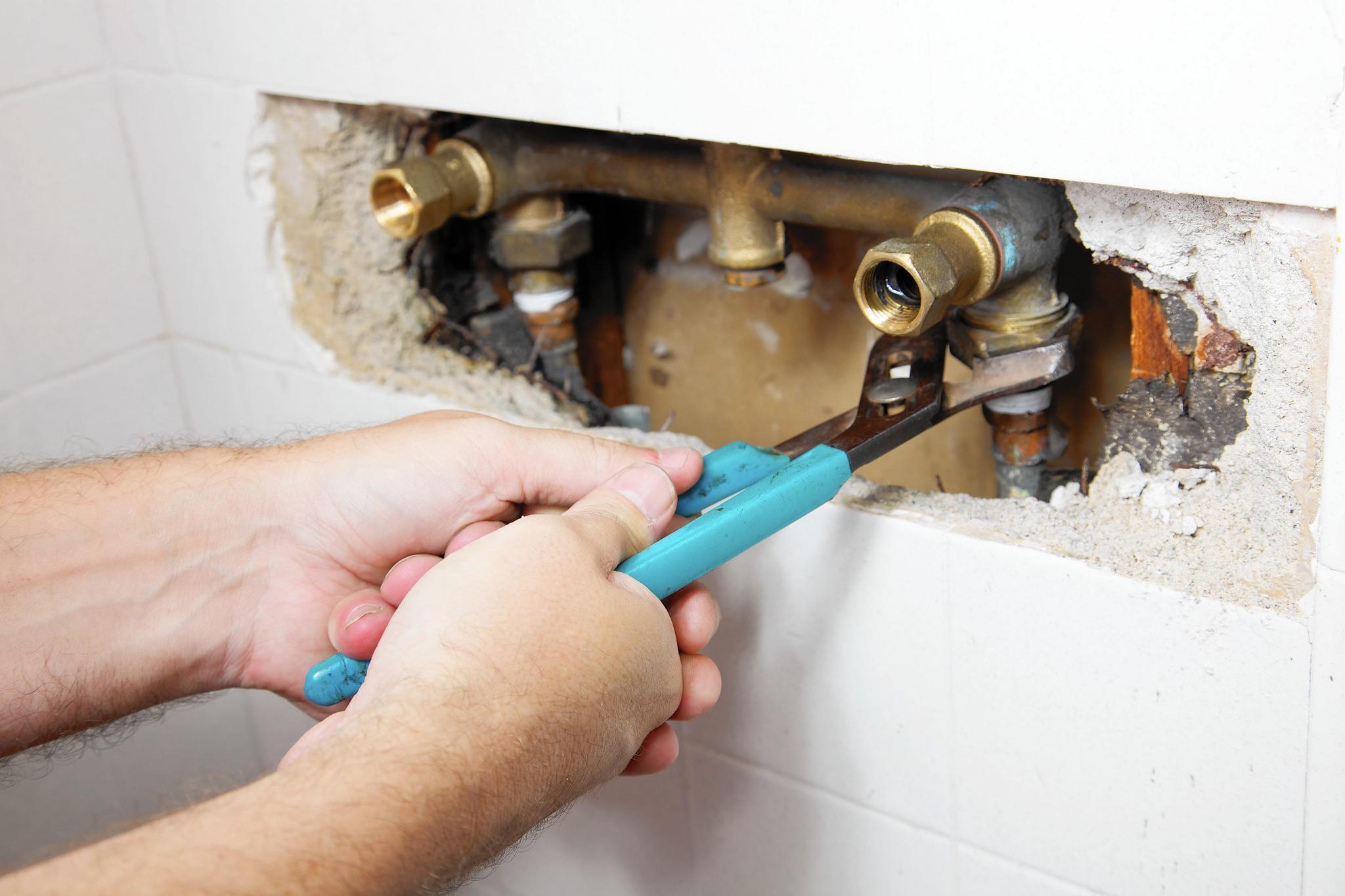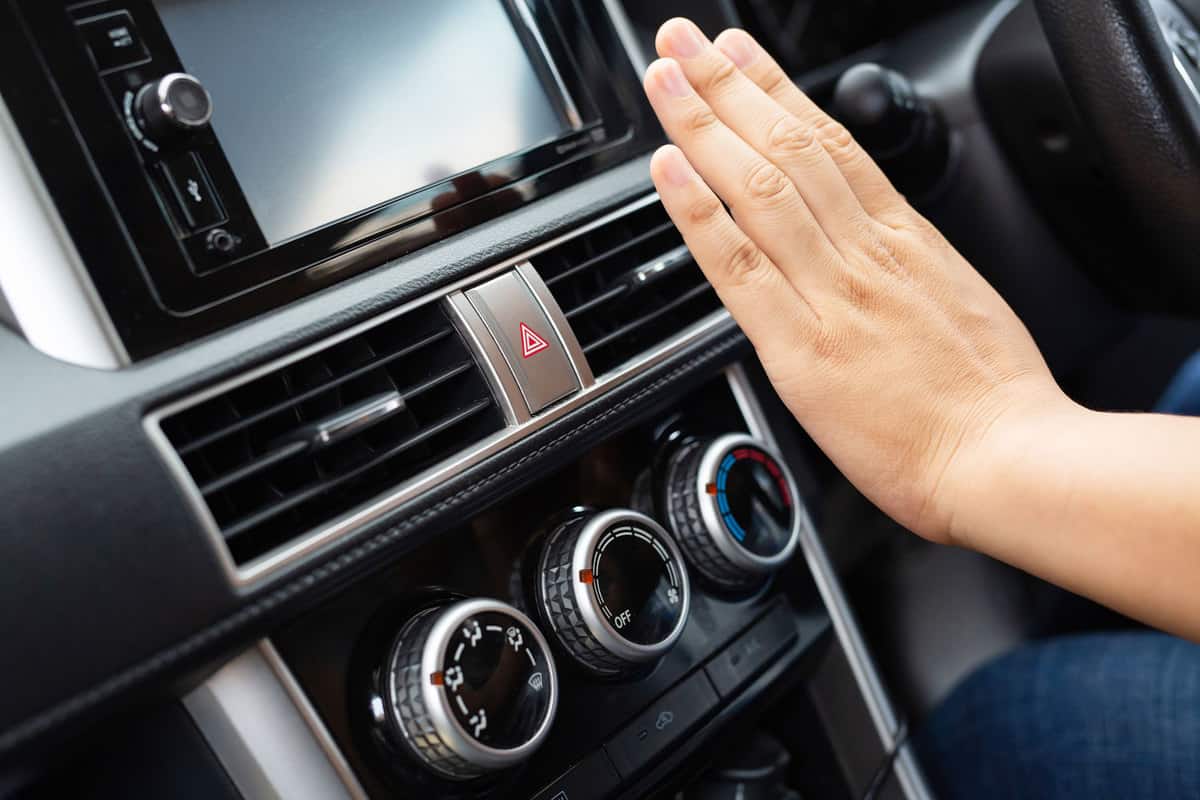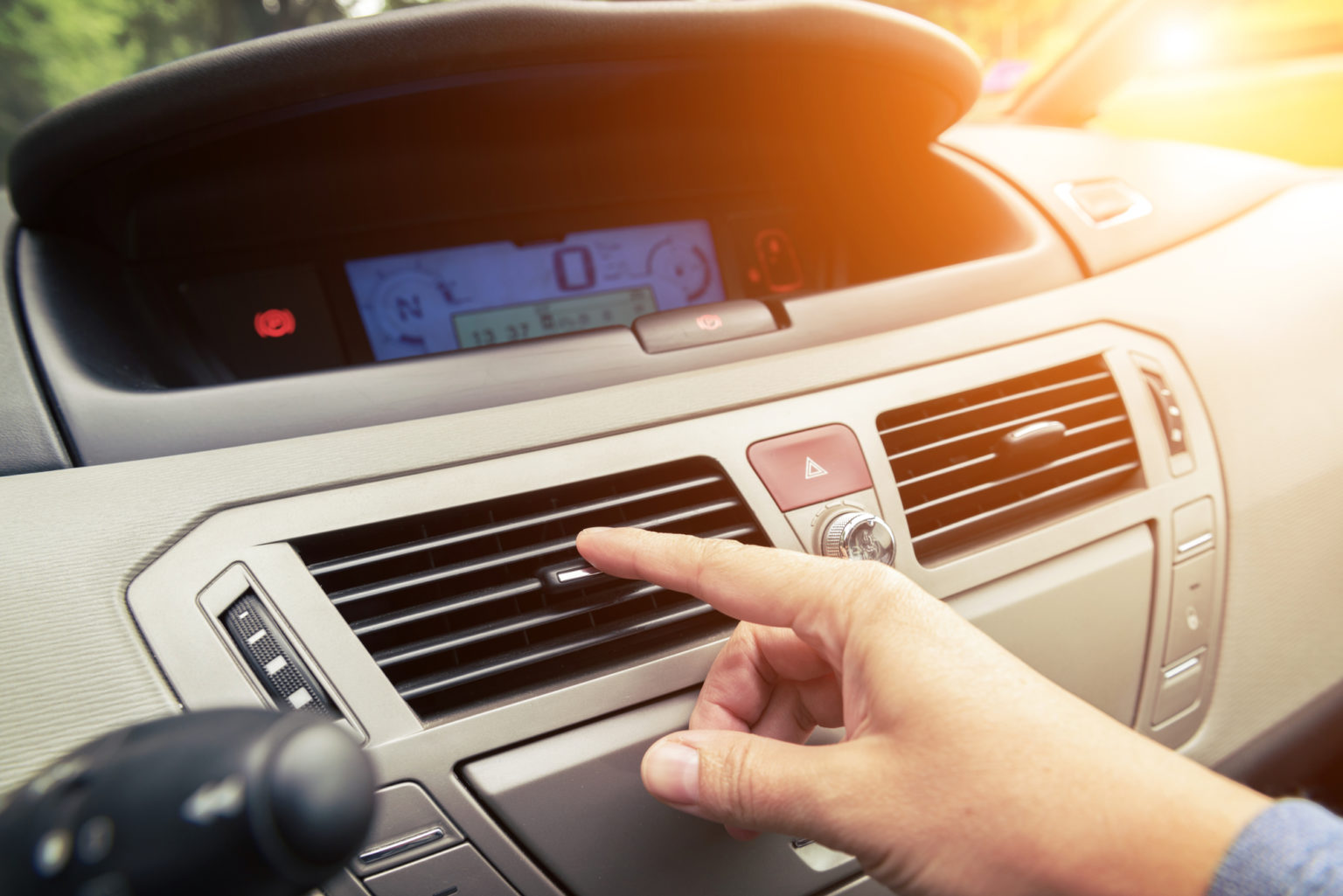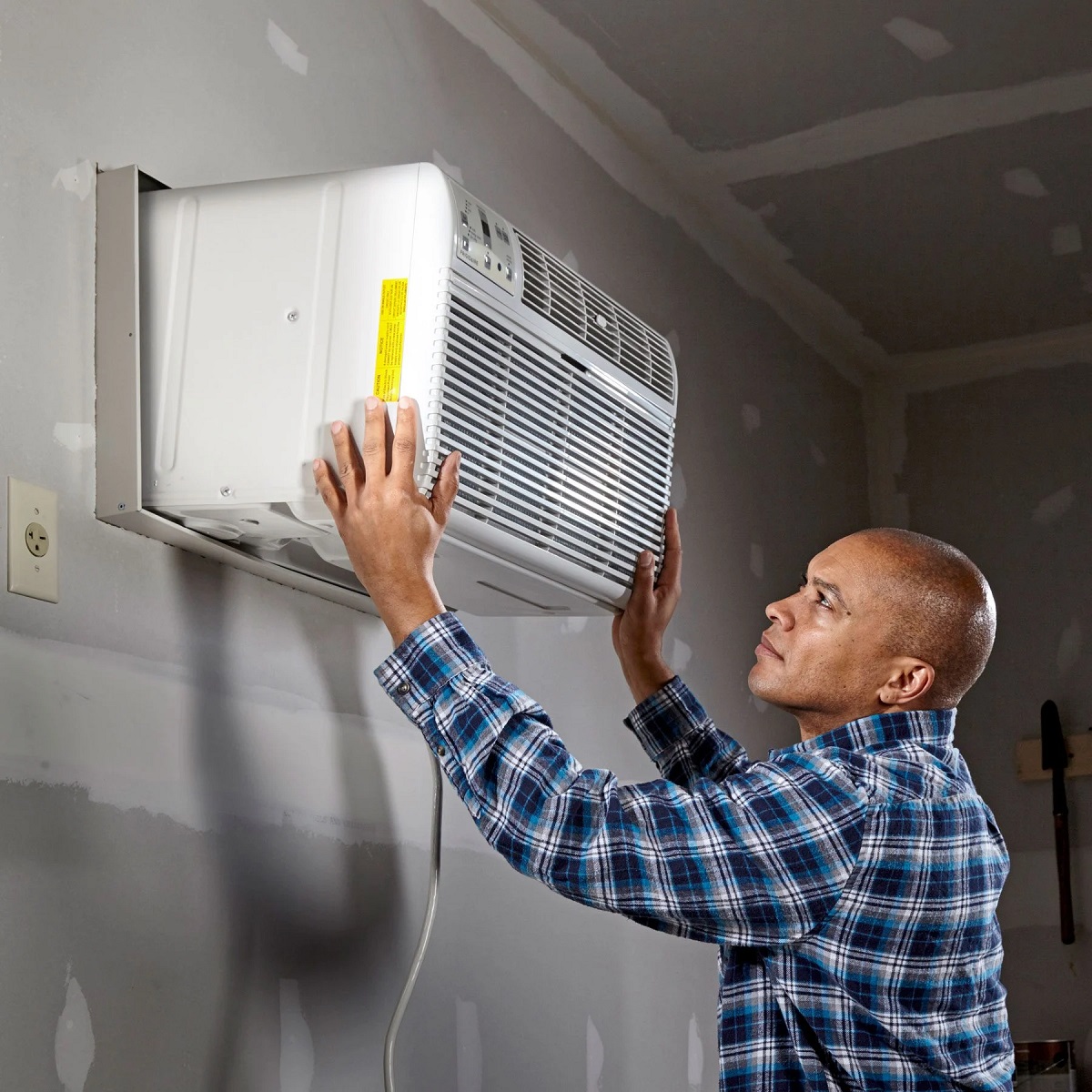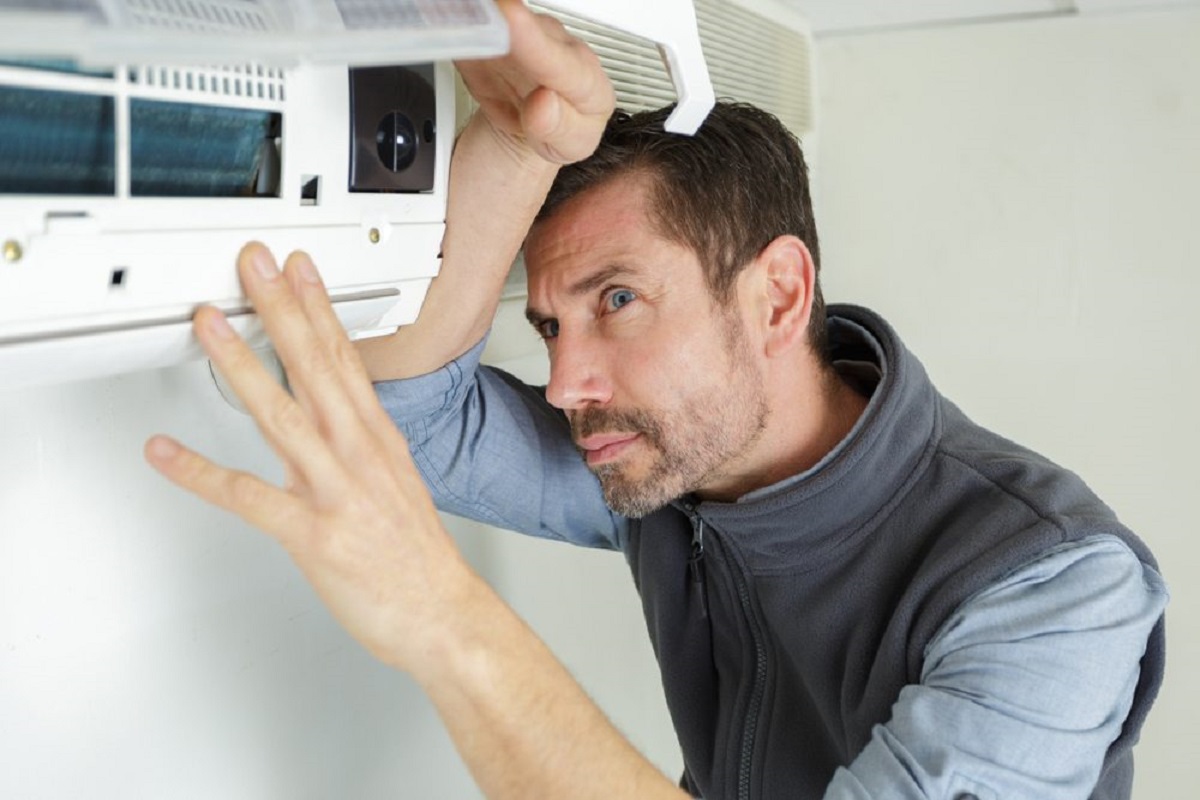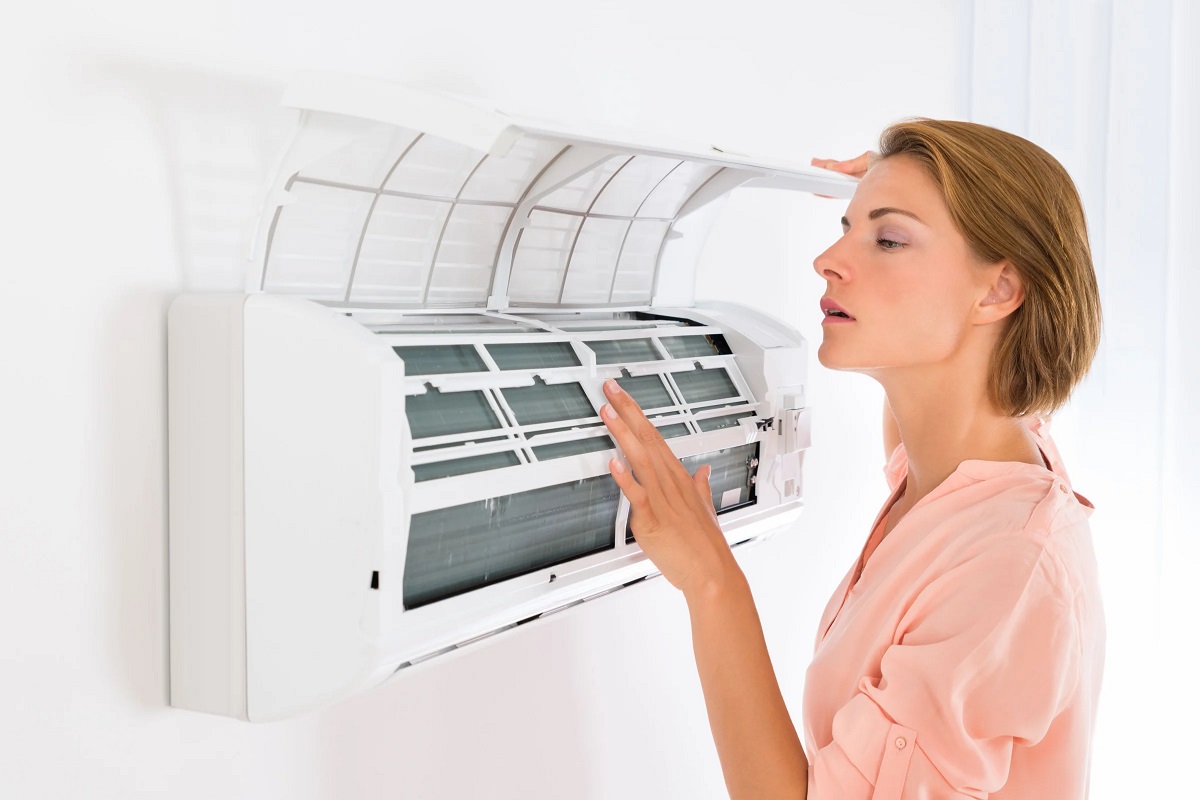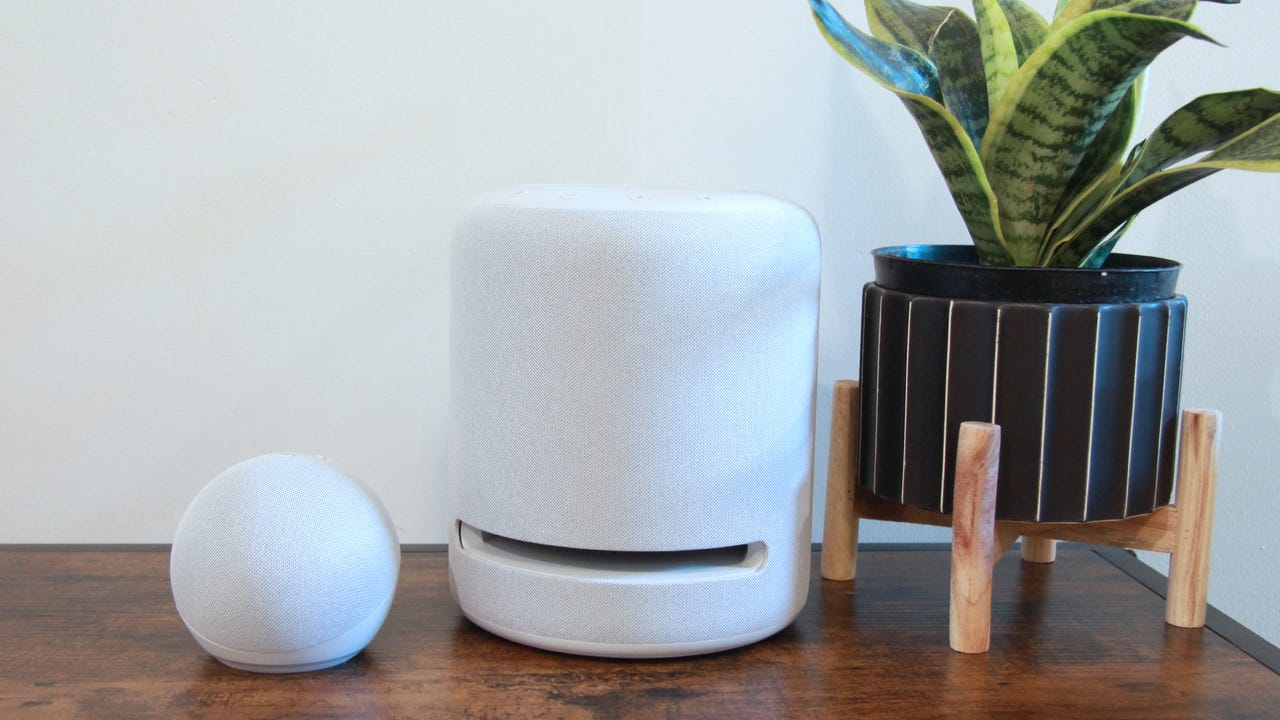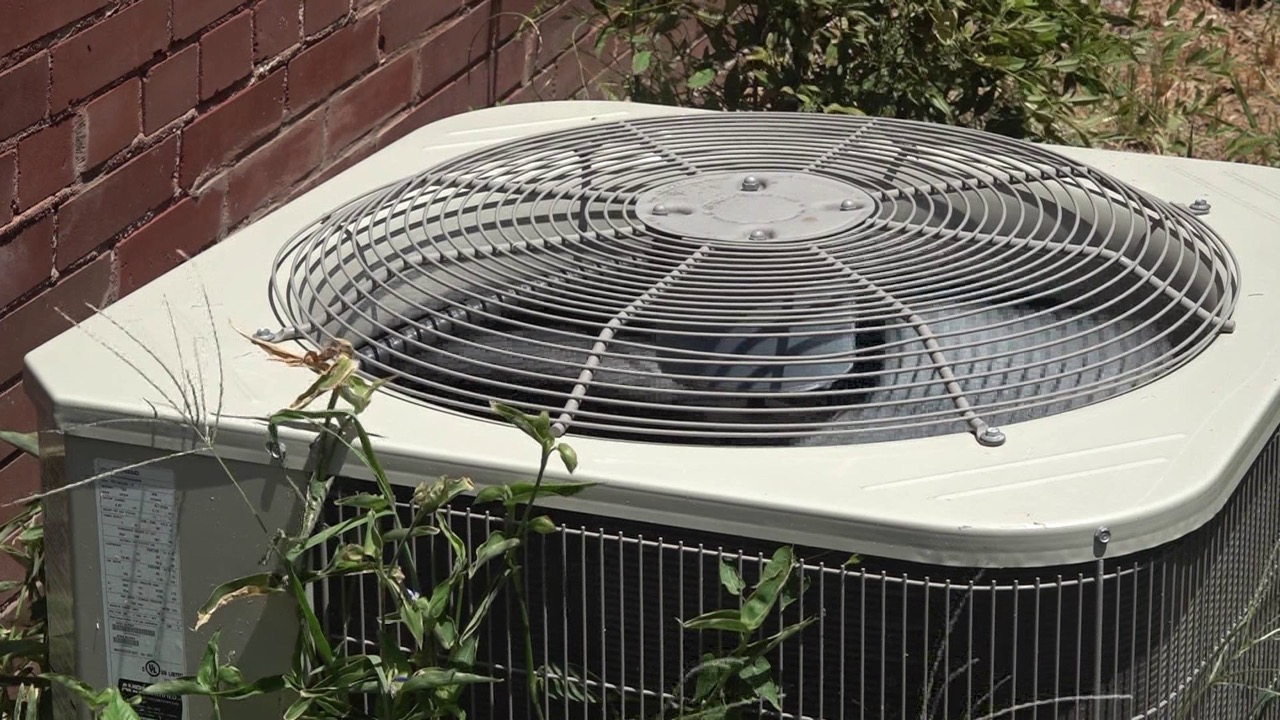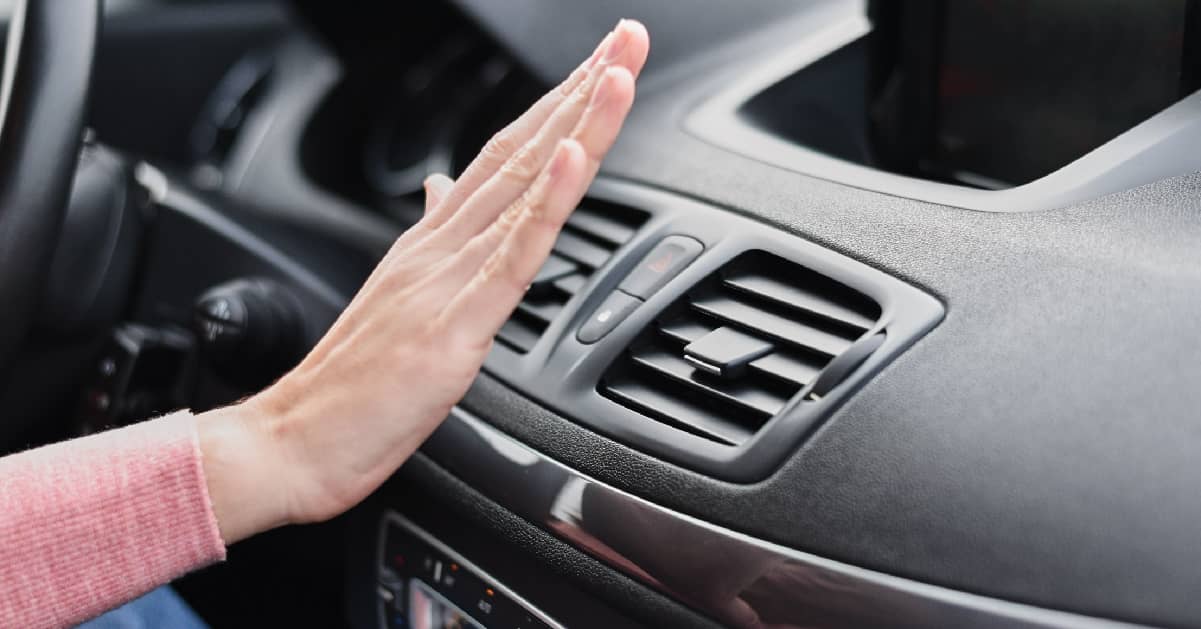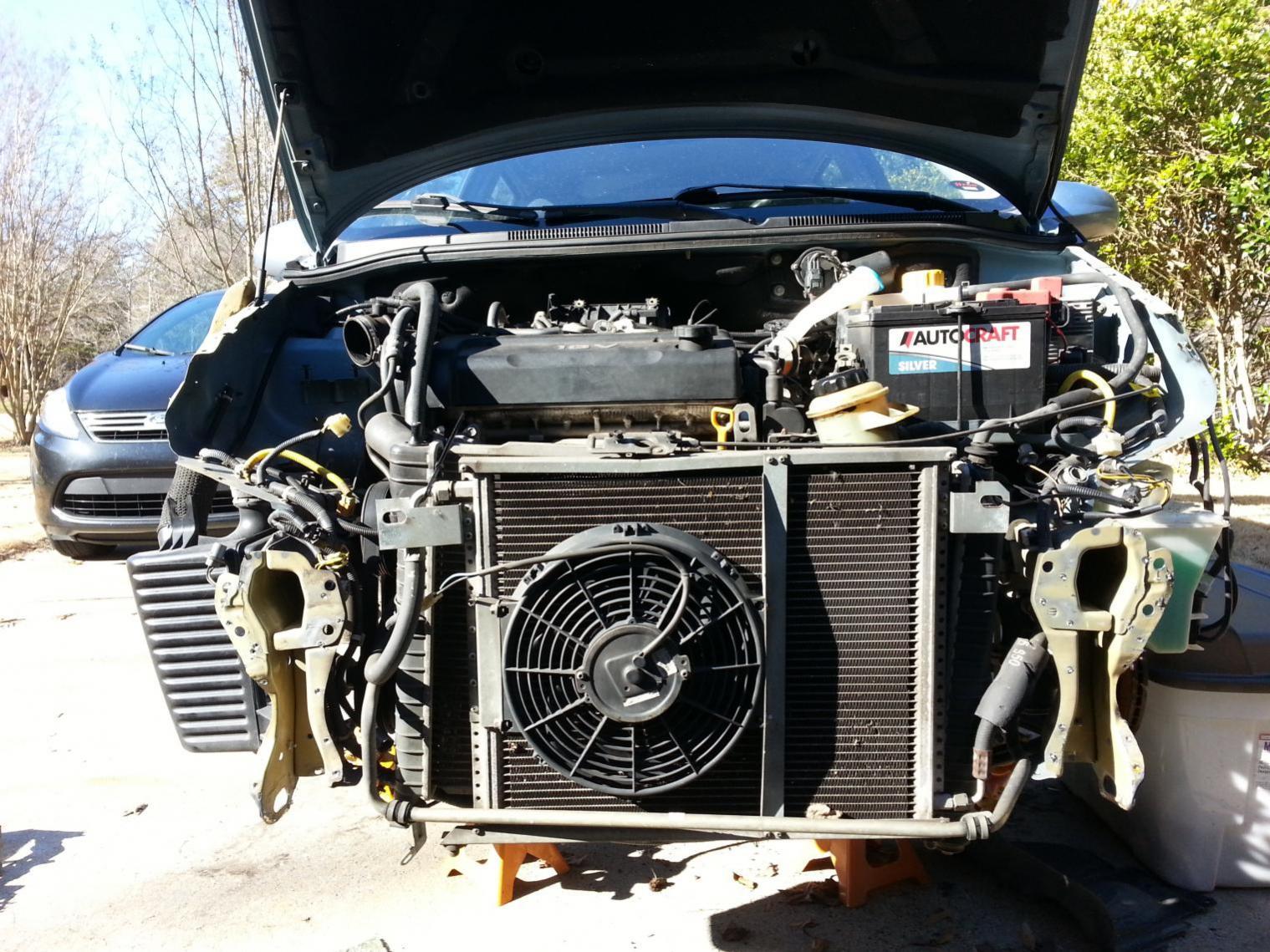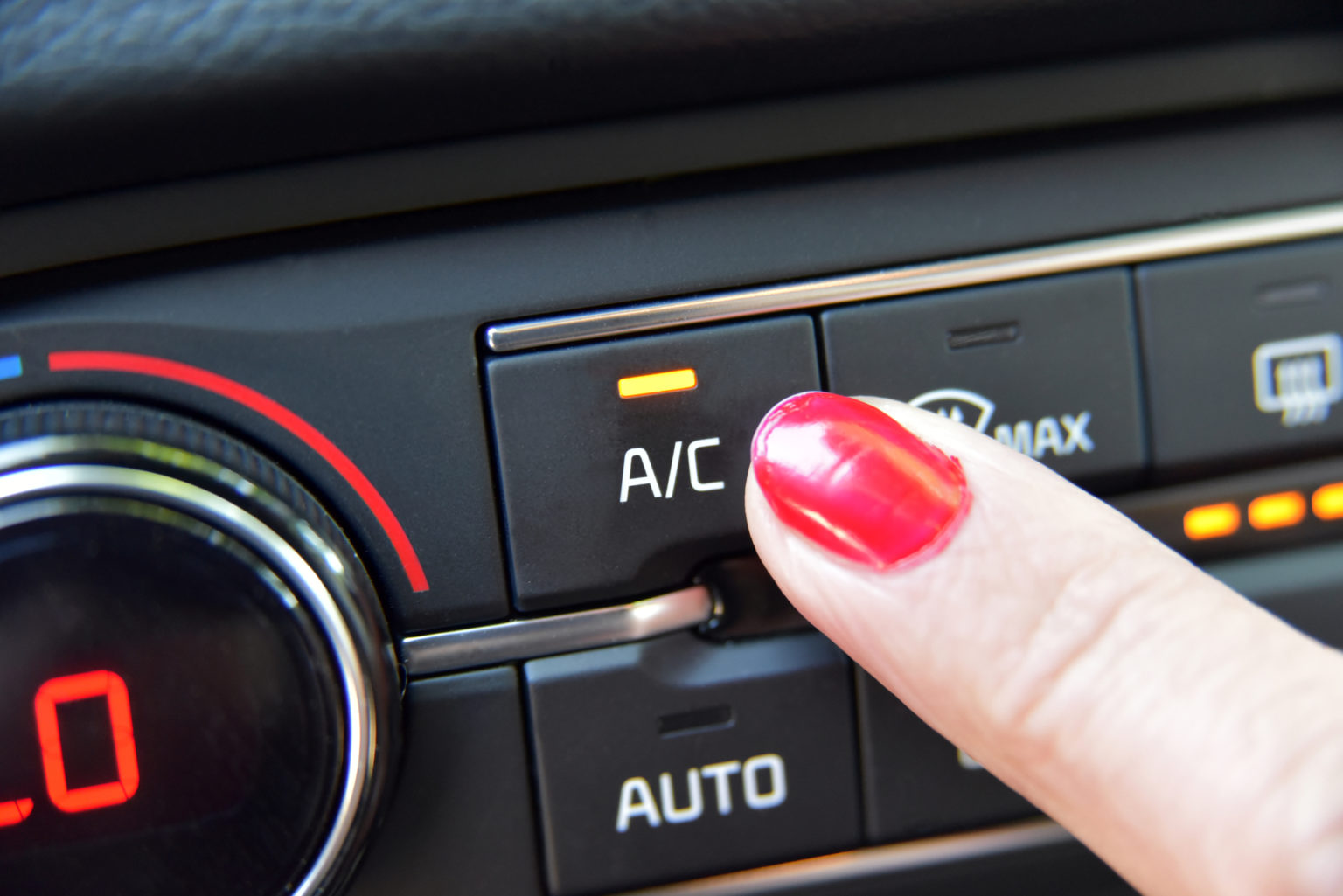Home>Home Maintenance>When Renting, Is The Landlord Responsible For AC Maintenance?
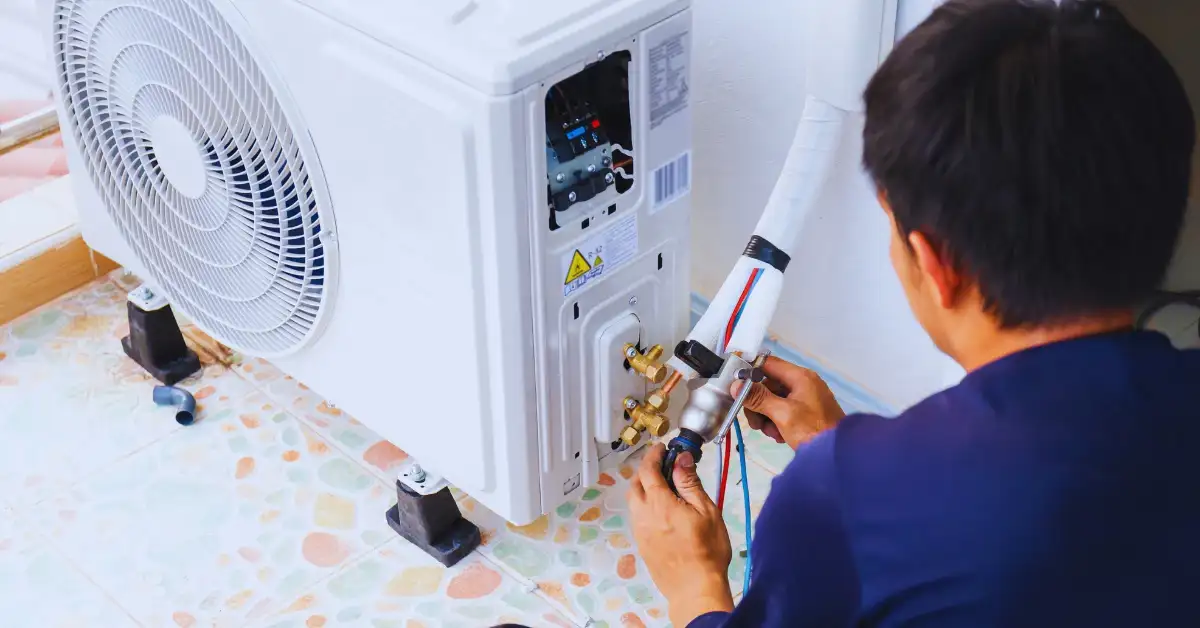

Home Maintenance
When Renting, Is The Landlord Responsible For AC Maintenance?
Modified: March 6, 2024
Are landlords responsible for AC maintenance when renting a home? Find out who is responsible for home maintenance and AC repairs in rental properties. Explore your rights as a tenant.
(Many of the links in this article redirect to a specific reviewed product. Your purchase of these products through affiliate links helps to generate commission for Storables.com, at no extra cost. Learn more)
Introduction
Welcome to the world of renting, where comfort and convenience go hand in hand with responsibilities and obligations. As a tenant, it’s important to understand the division of tasks between you and your landlord when it comes to maintaining your living space, including crucial elements like air conditioning (AC). In this article, we’ll explore the topic of AC maintenance and determine whether the responsibility lies with the landlord or the tenant.
When the summer heat becomes overwhelming, having a reliable and efficient AC system can make all the difference in creating a comfortable living environment. But who is responsible for ensuring that your AC is in top shape and functioning properly?
Before we delve into the specifics, let’s establish a basic understanding of AC maintenance. Regular maintenance is crucial to keep your AC system running efficiently and effectively. This typically involves tasks such as cleaning or replacing filters, checking refrigerant levels, inspecting electrical connections, and ensuring that fans and coils are clean and free from debris.
Now that we have a clear understanding of AC maintenance, let’s explore the responsibilities of landlords and tenants in ensuring the proper functioning of the AC system in a rental property.
Key Takeaways:
- Landlords are generally responsible for major AC repairs and maintenance, while tenants should keep the system clean and report issues promptly. Understanding lease agreements and local laws is crucial for a harmonious living environment.
- Tenants should promptly report any AC issues to their landlord and document the problem. If the landlord fails to address the issue, tenants have remedies available, including seeking legal advice and requesting repairs.
Read more: Home Repairs When Renting
AC Maintenance: The Basics
To fully grasp the concept of AC maintenance, it’s essential to familiarize yourself with the basic elements of an AC system. An AC system consists of several components that work together to cool and circulate air within a space.
The key components include the compressor, condenser, evaporator, and blower. The compressor is responsible for pressurizing and circulating the refrigerant, while the condenser expels heat from the refrigerant. The evaporator cools and dehumidifies the air, and the blower circulates the cooled air throughout the room.
Regular maintenance of these components is necessary to ensure the efficient and effective operation of your AC system. It involves tasks such as cleaning or replacing air filters, checking and topping up refrigerant levels, inspecting electrical connections, and cleaning coils and fans.
Proper AC maintenance offers a range of benefits, including improved energy efficiency, lower utility bills, prolonged lifespan of the AC unit, and improved air quality. Neglecting AC maintenance can result in reduced performance, increased energy consumption, higher repair costs, and even complete system failure, leaving you sweltering in the summer heat.
Now that we have a solid understanding of AC maintenance, let’s explore the specific responsibilities of landlords and tenants regarding AC maintenance in a rental property.
Understanding Landlord-Tenant Responsibilities
When it comes to rental properties, maintenance responsibilities are typically divided between the landlord and the tenant. Understanding these responsibilities is crucial to ensuring a harmonious living environment and avoiding any conflicts or misunderstandings.
Generally, landlords are responsible for maintaining the structural aspects of the property, including major systems such as plumbing, electrical, and heating. This means that they have an obligation to ensure that these systems are in good working order. However, the specifics of maintenance responsibilities can vary depending on local laws and the terms outlined in the lease agreement.
Tenants, on the other hand, are responsible for maintaining the cleanliness and general upkeep of the property. This includes tasks such as regular cleaning, minor repairs, and taking preventative measures to avoid damage. However, the maintenance obligations of tenants do not typically extend to major structural repairs or systems such as the AC.
When it comes to AC maintenance, the division of responsibilities may not always be clear-cut. In some cases, landlords may assume the responsibility for AC maintenance, while in others, it may fall under the tenant’s obligations. The specific arrangement depends on various factors, such as local laws, lease agreements, and the type of AC system in place.
Next, we will delve into whether landlords or tenants are responsible for AC maintenance in rental properties.
Is the Landlord Responsible for AC Maintenance?
Whether or not the landlord is responsible for AC maintenance in a rental property depends on several factors, including local laws, lease agreements, and the type of AC system installed.
In some regions, local laws may explicitly state that the landlord is responsible for maintaining and repairing the AC system. These laws are in place to protect tenants and ensure that they have access to essential amenities, such as a functional AC system. If your local laws stipulate that the landlord is responsible for AC maintenance, you can expect them to handle tasks like regular inspections, repairs, and ensuring the overall functionality of the AC system.
On the other hand, if there are no specific laws governing AC maintenance, the responsibility is often determined by the terms outlined in the lease agreement. Lease agreements can vary widely, and it’s essential to read your contract thoroughly to understand each party’s responsibilities. In some cases, the lease agreement may place the burden of AC maintenance on the tenant, requiring them to regularly maintain and service the AC system.
Additionally, the type of AC system installed in the rental property can impact maintenance responsibilities. Portable or window AC units are typically the responsibility of the tenant, as they are easily removable and may have been provided by the tenant themselves. However, for central AC systems or built-in units, the landlord is usually responsible for maintenance and repairs.
Ultimately, whether the landlord or the tenant is responsible for AC maintenance should be clearly outlined in the lease agreement or dictated by local laws. It’s important for tenants to familiarize themselves with these terms to avoid any misunderstandings or disputes.
The next section will explore lease agreements and maintenance clauses in more detail to provide further clarity on AC maintenance responsibilities.
Lease Agreements and Maintenance Clauses
The terms and conditions of a lease agreement play a crucial role in determining the responsibilities of both the landlord and the tenant regarding AC maintenance. Lease agreements are legal contracts that outline the rights and obligations of each party involved in the rental agreement.
When it comes to AC maintenance, lease agreements may contain specific clauses that address the maintenance responsibilities of the landlord and the tenant. These clauses can vary widely, so it’s important to carefully review and understand the terms before signing the agreement.
Some lease agreements may explicitly state that the landlord is responsible for AC maintenance. This means that the landlord assumes the responsibility for regular inspections, repairs, and keeping the AC system in proper working order. In such cases, tenants can request maintenance or repairs from their landlord whenever the AC system malfunctions or requires servicing.
On the other hand, some lease agreements may place the responsibility on the tenant for AC maintenance. This means that the tenant is required to regularly clean, maintain, and service the AC system. It is important for tenants to understand what is expected of them regarding AC maintenance and ensure that they fulfill their responsibilities as outlined in the lease agreement.
In some cases, lease agreements may also include provisions for shared responsibility, with both the landlord and the tenant expected to contribute to AC maintenance in different ways. For example, the landlord may be responsible for major repairs or replacements, while the tenant may be responsible for routine cleaning and filter replacements.
When reviewing a lease agreement, pay close attention to any maintenance clauses that specifically address AC systems. If there are any ambiguities or uncertainties, it’s important to communicate with the landlord and seek clarification before signing the agreement. This will help prevent any future disputes regarding AC maintenance responsibilities.
Remember, lease agreements are legally binding documents, and it’s crucial to adhere to the terms outlined within them. In the absence of specific lease provisions or local laws governing AC maintenance, it’s advisable to discuss the division of responsibilities with your landlord to reach a mutual understanding.
Now that we have discussed lease agreements and maintenance clauses, let’s explore the responsibilities of tenants when it comes to AC maintenance in more detail.
Read more: Car Overheats When AC Is On
Tenant Responsibilities in AC Maintenance
While the responsibility for AC maintenance in a rental property can vary depending on local laws and lease agreements, tenants often have certain responsibilities when it comes to maintaining the AC system.
One common tenant responsibility is keeping the AC system clean and free from debris. This includes regularly cleaning or replacing air filters to ensure proper airflow and prevent dust and dirt from clogging the system. It’s important to follow the manufacturer’s instructions for filter maintenance and replace them as recommended.
Tenants should also be mindful of the surroundings of the AC unit, ensuring that it is clear of any obstructions such as furniture, plants, or other objects that may restrict airflow. Additionally, keeping the area around the unit clean and free from debris can help maintain optimal AC performance.
It’s also important for tenants to promptly report any issues or malfunctions with the AC system to the landlord. This includes problems such as unusual noises, insufficient cooling, or a complete breakdown of the unit. Timely reporting allows the landlord to take appropriate action and address the issue promptly.
While tenants may have certain responsibilities in AC maintenance, it’s essential to note that they are generally not responsible for major repairs or replacements of the AC system. These tasks typically fall within the landlord’s obligations, provided they are outlined in the lease agreement or mandated by local laws.
In cases where tenants are responsible for AC maintenance, it’s crucial to follow any guidelines or instructions provided by the landlord. This may include scheduling routine maintenance and servicing by a professional HVAC technician to ensure the AC system remains in good working order.
By fulfilling their responsibilities in AC maintenance, tenants can help prolong the lifespan of the system and ensure their own comfort and well-being in the rental property.
Now let’s shift our focus to the obligations of landlords when it comes to AC maintenance.
It is the landlord’s responsibility to maintain and repair the air conditioning system in a rental property. Make sure to review your lease agreement for specific details on maintenance responsibilities.
Landlord Obligations in AC Maintenance
When it comes to AC maintenance in a rental property, landlords have specific obligations to ensure the functionality and proper upkeep of the AC system. These obligations can vary depending on local laws, lease agreements, and the type of AC system in place.
One of the primary responsibilities of landlords is to provide a rental property with a working AC system, especially in areas where AC is deemed an essential amenity. This means ensuring that the AC system is in good working order at the beginning of the lease term, and any necessary repairs or replacements are carried out promptly.
Landlords are generally responsible for major repairs and replacements of the AC system. This includes addressing issues such as compressor malfunctions, refrigerant leaks, faulty wiring, or any other substantial faults that affect the operational efficiency of the AC system.
Regular inspections and maintenance of the AC system are also the responsibility of the landlord. This can involve hiring a professional HVAC technician to conduct routine maintenance, cleaning, and servicing of the system. Regular maintenance helps identify and address potential issues before they escalate into more significant problems.
Landlords should also ensure that the AC system is operating efficiently, providing adequate cooling and ventilation to the rental property. This includes keeping the system clean and free from debris, ensuring proper airflow, and addressing any performance issues reported by the tenants.
It’s important for landlords to respond promptly to tenants’ requests for AC maintenance and repairs. Timely attention to AC issues not only ensures the comfort and satisfaction of the tenants but also helps to maintain a good landlord-tenant relationship.
Landlords should also keep thorough records of AC maintenance and repair activities. This includes documentation of inspections, maintenance schedules, and any repairs conducted. These records can be beneficial in case of any disputes or claims in the future.
Remember, the specific obligations of landlords in AC maintenance may vary depending on local laws, lease agreements, and the type of AC system. It’s important for landlords to familiarize themselves with the applicable regulations and fulfill their responsibilities accordingly.
Now that we understand the obligations of landlords in AC maintenance, let’s explore the importance of reporting AC issues to the landlord in a timely manner.
Maintenance and Repair Timelines
Maintaining a clear timeline for AC maintenance and repairs is essential for both landlords and tenants. Timely maintenance ensures that the AC system remains in good working order, while prompt repairs address any issues that may arise during its lifespan.
For routine AC maintenance, landlords should establish a regular schedule. This can involve annual or bi-annual inspections and servicing by a qualified HVAC technician. Regular maintenance helps prevent major issues and ensures that the AC system operates efficiently, which can contribute to lower energy consumption and prolong the system’s lifespan.
When it comes to repairs, both landlords and tenants should communicate promptly. Tenants should report any AC issues or malfunctions to the landlord as soon as they are detected. Landlords, in turn, should respond in a timely manner and arrange for necessary repairs or inspections by a qualified technician.
The specific timelines for repairs can vary depending on the severity of the issue. Minor repairs, such as fixing a faulty thermostat or addressing a minor cooling issue, should be addressed within a reasonable timeframe, typically within a few days or a week.
For more significant repairs that impact the functionality of the AC system, landlords should prioritize them and aim to resolve them as soon as possible. This can include repairs to the compressor, motor, or any other major components of the AC system. These repairs may take longer, depending on the availability of parts and the complexity of the problem.
In cases where the AC system is completely non-functional or poses a health and safety risk to tenants, landlords should prioritize repairs and aim to resolve the issue within the shortest timeframe possible. This ensures that tenants are not left uncomfortable in extreme weather conditions.
Both landlords and tenants should maintain open lines of communication regarding AC maintenance and repairs. Tenants should promptly report any issues, while landlords should provide updates on the progress of repairs and communicate any required actions or timelines.
By adhering to maintenance and repair timelines, both landlords and tenants can ensure the proper functioning of the AC system and maintain a harmonious living environment.
In the next section, we will discuss the necessary steps tenants should take when reporting AC issues to the landlord.
Reporting AC Issues to the Landlord
When tenants encounter AC issues in a rental property, it’s important to promptly inform the landlord to ensure timely resolution of the problem. Reporting AC issues in a clear and detailed manner can help the landlord understand the nature of the problem and take appropriate actions to address it.
Here are the necessary steps tenants should take when reporting AC issues to the landlord:
- Document the issue: Begin by documenting the details of the AC issue. Note down any specific symptoms, such as strange noises, insufficient cooling, or complete system failure. This information will be helpful when communicating with the landlord and any technicians involved in the repair process.
- Contact the landlord: Reach out to your landlord as soon as you notice an AC issue. Provide them with a clear description of the problem and the exact symptoms you are experiencing. You can communicate with your landlord through email, phone, or any other agreed-upon means of communication.
- Follow up: If you don’t receive a response from your landlord within a reasonable timeframe, follow up with a polite reminder. It’s important to keep the lines of communication open and ensure that your AC issue is being addressed.
- Allow access for inspections and repairs: Once your landlord acknowledges the AC issue, cooperate by granting access to the property for inspections and repairs. Make sure to schedule a convenient time for both parties and be present during the visit if necessary.
- Communicate any updates or concerns: If there are any changes or developments regarding the AC issue, promptly inform your landlord. This could include any progress made in repairs, suggestions from the technician, or concerns that arise during the process. Clear and open communication helps in resolving the issue promptly and effectively.
By reporting AC issues in a timely and detailed manner, tenants help their landlords understand the problem and take the necessary steps to address it. This proactive approach ensures that the AC system is restored to proper functionality, and tenants can enjoy a comfortable living environment once again.
In situations where the landlord fails to adequately address the AC issue, tenants may need to explore additional options and remedies, as outlined in the next section.
Read more: Who Pays For Plumbing When Renting
Remedies for Landlord Failure to Maintain AC
In cases where a landlord fails to fulfill their responsibilities in maintaining the AC system, tenants have several remedies available to address the issue and seek resolution. It’s important for tenants to understand their rights and be aware of the options they can pursue when faced with a landlord’s failure to maintain the AC.
Here are some remedies for tenants in the event of a landlord’s failure to maintain the AC:
- Communication and Documentation: Start by communicating with your landlord about the issue and documenting all attempts to address it. Keep a record of all correspondences, including emails, phone calls, and any agreements or promises made by the landlord.
- Consult Local Laws: Research local landlord-tenant laws to understand specific regulations concerning AC maintenance rights and responsibilities. Some jurisdictions may have specific guidelines that landlords must adhere to in maintaining essential amenities like an AC system.
- Seek Legal Advice: If the landlord’s failure to maintain the AC system persists and violates local laws or the terms of your lease agreement, you may want to seek legal advice from a tenant rights organization or a lawyer specializing in landlord-tenant disputes. They can provide guidance on your rights and legal options.
- Request Repairs: In some jurisdictions, tenants may have the right to request repairs and deduct the cost from their rent if the landlord fails to address the AC issue within a reasonable timeframe. However, it’s crucial to follow proper legal procedures and ensure that you comply with all requirements for this remedy.
- File a Complaint: If all other attempts to resolve the issue have been unsuccessful, you may consider filing a complaint with your local housing authority or a relevant regulatory agency. They can investigate the matter and take appropriate action to ensure that your landlord fulfills their obligations.
- Consider Lease Termination: In extreme cases where the AC system remains non-functional or poses serious health and safety risks, tenants may have grounds to terminate the lease early without penalty. Consult local laws and seek legal advice to understand the specific requirements for lease termination.
It’s important for tenants to thoroughly document all instances of the landlord’s failure to maintain the AC system and explore their options for resolution. Remember that each situation is unique, and the available remedies may vary depending on local laws and the specific circumstances of your case.
By understanding your rights and taking appropriate action, you can assert your needs as a tenant and seek a resolution to the AC maintenance issue.
Now let’s summarize the key points discussed in this article.
Conclusion
AC maintenance in a rental property is a shared responsibility between landlords and tenants. While the specific obligations can vary depending on local laws and lease agreements, understanding these responsibilities is crucial for ensuring a comfortable and well-maintained living environment.
Landlords generally have the duty to provide a functional AC system and undertake major repairs and maintenance. Tenants, on the other hand, are responsible for keeping the AC system clean and reporting any issues promptly.
Local laws and lease agreements play a significant role in determining the specific division of responsibilities. It is important to review and understand your lease agreement, paying close attention to any maintenance clauses and the roles outlined for both parties.
If your landlord fails to meet their obligations in AC maintenance, there are remedies available. These can include communication, documentation, seeking legal advice, requesting repairs, filing complaints, or even considering lease termination in extreme cases.
Remember to maintain open communication with your landlord, promptly reporting any AC issues and documenting the steps taken to resolve them. This approach promotes a positive landlord-tenant relationship and ensures that necessary repairs are carried out as efficiently as possible.
AC maintenance is essential for the comfort and well-being of tenants. By understanding your rights and responsibilities, you can navigate the maintenance process with confidence and address any issues that arise.
Whether you’re a landlord or a tenant, prioritizing AC maintenance contributes to a harmonious living environment and a properly functioning AC system that keeps everyone cool and comfortable during the hot summer months.
Frequently Asked Questions about When Renting, Is The Landlord Responsible For AC Maintenance?
Was this page helpful?
At Storables.com, we guarantee accurate and reliable information. Our content, validated by Expert Board Contributors, is crafted following stringent Editorial Policies. We're committed to providing you with well-researched, expert-backed insights for all your informational needs.
